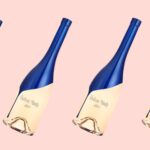Once a bottle of wine has been opened, its shelf life is limited and depends on a number of factors, such as ...
... the type of wine, its alcohol content, tannins, and exposure to oxygen. This article (brought to you by the Oeni app, available on iOS and Android) will guide you on how to extend the life of an open wine and maximize its potential.
Factors Affecting Wine Preservation
- Alcohol and tannin levels: Wines with high alcohol and tannin levels, such as robust red wines, have better longevity after opening. Tannins act as natural antioxidants, slowing down oxidation.
- Acidity: High acidity helps preserve wine. White wines, which are often more acidic than reds, can therefore have a longer shelf life.
- Sulfites: Sulfites, added during the winemaking process, act as preservatives and extend the life of an open wine.
Shelf Life by Wine Type
- Sparkling wines: Sparkling wines such as champagne and prosecco quickly lose their effervescence and flavor. They generally keep between 1 and 3 days after opening. Use an airtight cork specific to sparkling wines to prolong freshness.
- Light white wines and rosés: These wines, characterized by their low alcohol content and delicate aromas, can be stored in the refrigerator for 3 to 5 days. Beyond that, they may lose their freshness and aromas.
- Full-bodied white wines: Barrel-aged white wines, such as Chardonnay, can oxidize rapidly after opening. They can generally be kept for 3 to 5 days in the refrigerator.
- Red wines: Red wines can be stored between 3 and 6 days after opening. Tannic, full-bodied red wines such as Cabernet Sauvignon, Merlot and Syrah have a longer shelf life thanks to their tannin and alcohol content.
- Dessert wines: Dessert wines such as port and sherry, rich in sugar and alcohol, can be kept for up to 28 days after opening, when properly corked and refrigerated.
Storage tips
- Refrigeration: Always refrigerate open wines, including reds. Refrigeration slows down the oxidation process and extends the wine's shelf life.
- Hermetic closures: Use specific closures to limit exposure to air. Vacuum pumps can also be effective in extracting air from the bottle.
- Bottle position: Keep the bottle upright to minimize the surface area in contact with the air, which reduces oxidation.
Alternative uses for leftover wine
If you have leftover wine, there are several creative ways to use it:
- Cuisine: Use open wines in sauces, marinades or to deglaze dishes. Wine can add depth and complexity to culinary recipes.
- Drinks: Make mulled wine, sangria or cocktails. Open wine can be used as a base for tasty, innovative drinks.
- Homemade vinegar: Turn wine into vinegar. This is a great way to recycle wine and create a delicious homemade product for salads and marinades.
Conclusion
Just like the management of your wine cellar, the preservation of open wines depends on many factors, and it is essential to know the characteristics of each type of wine to optimize its lifespan. By following these storage tips, you can prolong the life of your open wine and enjoy it to the full. For alternative uses, give free rein to your culinary and mixological creativity.





